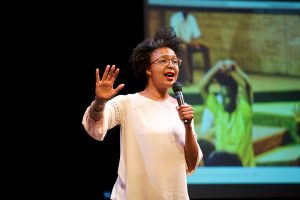 Dr. Lisa Biggs ’93 is interested in the role of the arts, and performance more broadly writ, in movements for social justice. Originally from the Southside of Chicago, after graduating from Amherst she worked as a professional actress, appearing in productions at Lookingglass Theatre, Arena Stage, Woolly Mammoth, the Kennedy Center, ACT-Co., ETA Creative Arts, and many more. The three years that she worked as a teaching artist at the Living Stage Theatre Company in Washington, DC (1999-2001), reignited her love of playwriting. She is the author of seven plays, including most recently After/Life, a story of the ’67 Detroit rebellion. Dr. Biggs currently serves as an assistant professor at Brown University where she teaches African American cultural history and performance studies.
Dr. Lisa Biggs ’93 is interested in the role of the arts, and performance more broadly writ, in movements for social justice. Originally from the Southside of Chicago, after graduating from Amherst she worked as a professional actress, appearing in productions at Lookingglass Theatre, Arena Stage, Woolly Mammoth, the Kennedy Center, ACT-Co., ETA Creative Arts, and many more. The three years that she worked as a teaching artist at the Living Stage Theatre Company in Washington, DC (1999-2001), reignited her love of playwriting. She is the author of seven plays, including most recently After/Life, a story of the ’67 Detroit rebellion. Dr. Biggs currently serves as an assistant professor at Brown University where she teaches African American cultural history and performance studies.
Dr. Lisa Biggs ’93
Q. How have you found value and purpose in your career?
A. I keep asking questions and looking for honest and truly supportive colleagues who I can relate to, ask hard questions, think and work closely with. I chose to be an artist and a scholar. Instead of buying into other people’s binary modes of thinking, I have opted for a “both/and” approach that gives me permission to test existing boundaries and ultimately discover what is real and what is valuable for me.
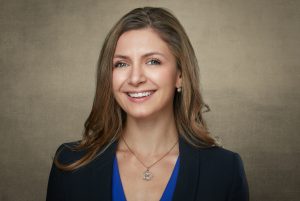 Yana Yushkina ’10 is the product lead for Search in Chrome.
Yana Yushkina ’10 is the product lead for Search in Chrome.
Yana took an unorthodox path to her current role. She studied economics and French at Amherst and spent her early career working in economics consulting and data analytics before she transitioned into product management and the technology field at Google.
As a Product Lead for Search at Chrome, she steers the work of two dozen product managers, user experience designers and researchers, and software engineers to make Chrome an effective place to find information on the internet. She also frequently partners cross-company with teams in Search, Ads, Lens, and other divisions.
Yana is an active product person and speaker — one who is passionate about using data-driven development to make high-quality, easy-to-use products for users around the world. She is excited to share her story and insight with students of all class years and majors who are considering various roles in technology both behind and beyond the keyboard.
Yana Yushkina ’10
Q. How do you use your liberal arts education in the work you do today?
A. Product management requires a great degree of empathy for users and colleagues, a requirement for everyday learning, ample curiosity, superior communication and persuasion skills, an ability to draw insights and parallels between seemingly unrelated topics, and a propensity to be inspired by new ideas. Liberal arts education is great at cultivating all those traits.
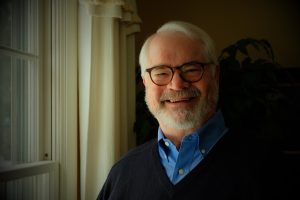 Dr. Kent Peterson ’69 is an Emeritus professor in the Department of Educational Leadership and Policy Analysis, University of Wisconsin-Madison. He currently works with urban, rural, and suburban leadership academies that serve new, aspiring, and experienced school principals in the U.S. and around the world.
Dr. Kent Peterson ’69 is an Emeritus professor in the Department of Educational Leadership and Policy Analysis, University of Wisconsin-Madison. He currently works with urban, rural, and suburban leadership academies that serve new, aspiring, and experienced school principals in the U.S. and around the world.
After Amherst, Dr. Peterson ’69 continued his education at Temple University (MA), and the University of Chicago (Ph.D). He is the founding director of the Vanderbilt Principals Institute and the Co-director of the Wisconsin LEAD Academy. Previously he was the Director of the National Center for Effective Schools Research.
Dr. Peterson ’69 has had a career-long commitment to universal access to quality, caring, and supportive schools. From his start as a 5th grade teacher in Philadelphia public schools to educating future leaders at Vanderbilt University and the University of Wisconsin-Madison, Kent has taught and advised thousands of students. Dr. Peterson ’69 has published more than eighty articles, co-authored seven books and raises millions of dollars in supportive education grants.
Dr. Kent Peterson ’69
Q.How have you found value and purpose in your career?
A. While I loved and valued being a K12 classroom teacher and working with my students in Philadelphia, it struck me that I truly missed battling over ideas, doing research, and sharing my ideas in writing. Graduate school and an academic career seemed to offer me the chance to add to the knowledge base on schools and school leadership, but also the opportunity to perhaps make a direct impact on the lives, careers, and success of practitioners in the field.
Some warned me not to try to live simultaneously in the academic realm and the world of practice. I decided that both were important to me and I set off to shape a career in those two arenas.
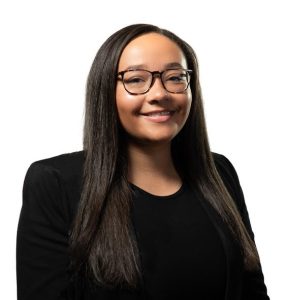 Alexandra Morgan-Welch ’14 is a Director at Comcast NBCUniversal and a participant in the company’s Rotational Leadership Program; she is currently serving on the Universal Studio Group’s Strategy & Business Development team. Since 2019, her roles have also included Corporate Diversity, Equity, and Inclusion, Data Science Strategy at Peacock, NBCUniversal’s new Direct-to-Consumer streaming service, and Comcast’s Pricing, Packaging, and Promotions team. Prior to joining Comcast NBCUniversal, Alexandra was a Senior Analyst and the America’s Lead for New Business Operations at Credit Suisse in New York from 2014 to 2017.
Alexandra Morgan-Welch ’14 is a Director at Comcast NBCUniversal and a participant in the company’s Rotational Leadership Program; she is currently serving on the Universal Studio Group’s Strategy & Business Development team. Since 2019, her roles have also included Corporate Diversity, Equity, and Inclusion, Data Science Strategy at Peacock, NBCUniversal’s new Direct-to-Consumer streaming service, and Comcast’s Pricing, Packaging, and Promotions team. Prior to joining Comcast NBCUniversal, Alexandra was a Senior Analyst and the America’s Lead for New Business Operations at Credit Suisse in New York from 2014 to 2017.
Alexandra earned an M.B.A. from Columbia Business School with Dean’s Honors in 2019. She served as the Co-President of the Media Management Association and as the Vice President of Communications for the Black Business Students Association. In 2014, Alexandra received her B.A. from Amherst College with a triple major in Mathematics, Film & Media Studies, and Music. Her honors thesis, Stardom and Participatory Viewership in the Age of Reality Television: A Study of the Bravo TV Network, was awarded the Senior Prize in Film and Media Studies.
Outside of work, Alexandra serves as a board member for Building for the Arts NY, as a Columbia Business School Admissions Ambassador, and in various volunteer roles at Amherst College. She is the recipient of the 2019 Young Alumni Award from the Amherst College Society of Alumni for her innovative service on the Amherst Fund Committee, as the Class Agent for the Class of 2014, and as a member of the 2014 Reunion Committee. After playing the viola with the Boston Youth Symphony Orchestras from 1999 to 2010, she now serves on the BYSO Council and as chair of the BYSO Alumni Ambassadors Program.
Alexandra Morgan-Welch ’14
Q. During your career what is something you have tried and been disappointed by? How did you pivot and/or adapt?
A. I have been surprised by the roles that I thought I would love that turned out not to be that interesting, and similarly, positions that I thought I would dislike that turned out to be excellent. I have stayed very open to different opportunities and teams. I consult mentors and take advice from colleagues, but I also am open to taking a risk and forming my own opinion rather than listening to chatter or following what sounds cool and exciting.
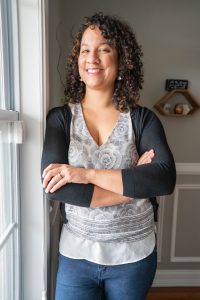 Jodie Simms-MacLeod ’09 is the Midwifery Director at University of Tennessee Medical Center. There, she both leads the team of midwives while also providing direct patient care. Prior to joining this practice, Jodie worked for several years in community-based birth centers.
Jodie Simms-MacLeod ’09 is the Midwifery Director at University of Tennessee Medical Center. There, she both leads the team of midwives while also providing direct patient care. Prior to joining this practice, Jodie worked for several years in community-based birth centers.
At Amherst, Jodie majored in biology, received the Five College Culture, Health, and Science Certificate, and co-founded the Amherst College Public Health Collaborative. Her passion for public health led her to move to Alabama and join the non-profit organization Project Horseshoe Farm in the first group of Fellows, where she explored her interests in rural public health and mental health. Jodie studied to become a Nurse Midwife and Family Nurse Practitioner at Emory and while still in school, volunteered in the community to support local refugee women throughout their pregnancies, births, and postpartum. Health equity, maternal & child health, and reproductive justice remain important priorities for her as she serves patients and families. Jodie cites her Amherst education, and its emphasis on making connections across disciplines, as fundamental to her everyday work: helping her find creative solutions as a leader of a team of health professionals, and emphasizing the role of narrative and culture in health and healing.
Jodie Simms-MacLeod ’09
Q. What is one thing you discovered about yourself early in your career?
A. That I can do hard things! As a new Midwife, I struggled my first year with “imposter syndrome” and often second guessed my clinical decisions. Occasionally I would realize I missed something or made a mistake and would reach out to my coworkers for support and advice. At first I would feel shame or guilt, but, overtime, I have come to realize it is important to not dwell so much on my mistakes, but focus on what I learned from them. It is learning how to respond that matters most. Failure is part of being human! I’ve found that being vulnerable and admitting mistakes and missteps helps build deeper human connection and ultimately moves us forward, personally and professionally.
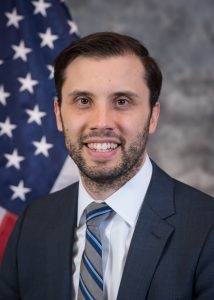 Jesse Corradi ’08 is Managing Director of Africa at the U.S. International Development Finance Corporation (DFC), a newly-established U.S. government development finance institution. As such, Jesse oversees DFC’s Africa investment strategy and is responsible for investing in, and mobilizing private capital for, underserved markets across sub-Saharan Africa aligned with U.S. international development and foreign policy priorities.
Jesse Corradi ’08 is Managing Director of Africa at the U.S. International Development Finance Corporation (DFC), a newly-established U.S. government development finance institution. As such, Jesse oversees DFC’s Africa investment strategy and is responsible for investing in, and mobilizing private capital for, underserved markets across sub-Saharan Africa aligned with U.S. international development and foreign policy priorities.
Prior to joining DFC, Jesse served as Head of Africa and Product Innovation at USAID’s Development Credit Authority. Jesse has also held various positions in foreign policy, national security, impact investing, and private equity at the U.S. Department of Energy, U.S. Department of State, U.S. Senate Committee on Defense Appropriations, 118 Capital, Neuberger Berman, and Lehman Brothers. He served as a U.S. Fulbright Fellow in Hong Kong from 2009-2010 and currently volunteers as Chief Financial Officer for Village X, a nonprofit dedicated to disrupting extreme poverty in rural Africa.
Jesse Corradi ’08
Q. Tell us about a mistake or misstep in your career and what you learned?
A. Despite relishing the opportunity to challenge certitude in the Amherst classroom (and beyond), when it came time to make my first major post-Amherst decision, I chose my first job based on what was most comfortable and conventional. Put simply, I was terrified of failing — and let that fear drive my first major career choice. Instead of pursuing an opportunity that was better suited to my intellectual curiosity and passion, I opted for a job that offered a well-traveled path to career success. The beauty of this experience was that I (quickly) recognized and appreciated what mattered most to me and did everything in my power to correct course and better define my professional ambitions and plan.
